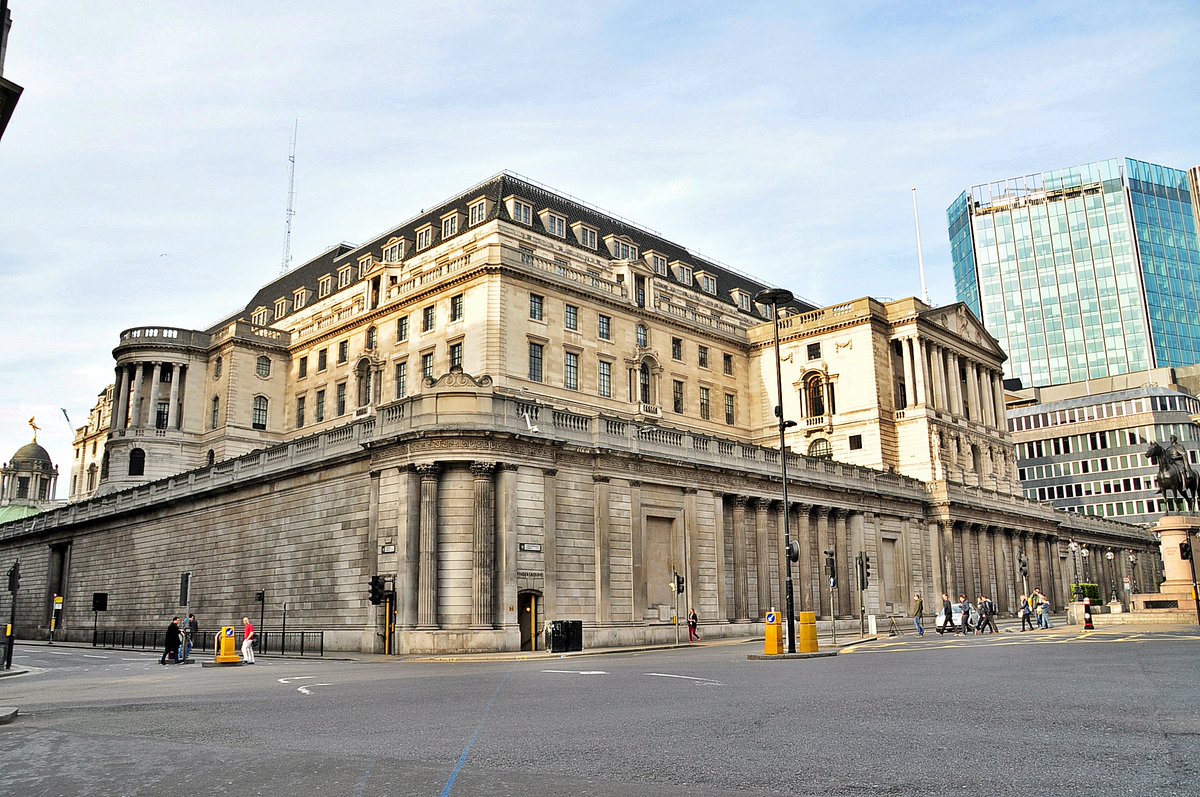
Accounting prof and #GND cofounder @RichardJMurphy wrote an astounding thread over the weekend explaining where money comes from and what purpose taxation serves.
1/
https://twitter.com/RichardJMurphy/status/1337737606688333826
1/

He's since published an edited version under the title "Macroeconomics, money and post-Brexit recovery, all in one Twitter thread," saying it "took four hours and 40 years of thinking to write."
taxresearch.org.uk/Blog/2020/12/1…
2/
taxresearch.org.uk/Blog/2020/12/1…
2/
It's a masterclass in the real world of money creation and taxation, beyond simplistic - and ahistorical - stories about money emerging from barter, followed by confiscation of our money by governments.
3/
3/
The reality is obviously that money comes from government spending. That's how money gets into the economy, because only governments are allowed to create money, so all money starts with government spending.
4/
4/
But what is money? Modern money - money over the past 50 years - is "just a promise to pay." When you borrow £1000 from the bank, you promise to pay it back. The bank opens a loan account and credits your savings account £1000 - a promise to give you that money on demand.
5/
5/
"Two promises. Two accounts. And as a result we get new money. That is how all money is created. It is as simple as that. There is no one else’s money involved in this process. The bank does not lend out the money saved with them."
6/
6/
"There are no notes and coin moved from one pile to another pile to back this all up either. There are just two promises. And then there is new money."
Money is a promise. It's easier for some people than others to get money is that their promises are more credible.
7/
Money is a promise. It's easier for some people than others to get money is that their promises are more credible.
7/
If the government wants to borrow money, it can do so very cheaply because its promise to repay that money is very credible. They have their own bank, and they issue their own money. The government can always repay its debts.*
8/
8/
(*Note we're talking about "monetarily sovereign" governments: governments that borrow in a free-floating currency that they themselves issue - not Venezuela, Zimbabwe, pre-crisis Argentina, or eurozone countries)
9/
9/
When the bank loans you money, you make a promise to repay it. When you put money in the bank, it makes a promise to repay you. Governments - whose promises to repay are credible - back banks' promises through deposit insurance (a promise to create more money if needed).
10/
10/
Murphy asks, why do we even need a government in this picture? Why can't we all just make promises to each other and issue IOUs? Because we need a backstop: an entity that creates currency and can always repay any debt.
11/
11/
It's not just the government's ability to issue currency makes its promises better than everyone else's - it's also the ability to tax. Spending creates money, and taxing destroys it.
12/
12/
Tax is not collected BEFORE the government spends. The government spends money into existence. It doesn't need to tax us before it can spend money. But taxing limits how much money circulates.
13/
13/
If the government creates money without destroying it, eventually there will be too much money in circulation and prices will go up - inflation. Governments aren't households and they don't need balanced books.
14/
14/
A balanced budget (in which the government taxes as much as it spends) leaves no money to circulate. If there's too much money in circulation - if there's an inflation problem - we might want that, but if governments net-remove money every year, the economy collapses.
15/
15/
But how do you know how much money should be taken out or put into the economy? Right now, we control inflation by targeting a certain unemployment rate, AKA the NAIRU (non-accelerating inflation rate of unemployment).
16/
16/
The theory of the NAIRU is that if a certain percentage of your neighbors are unemployed, there's just enough money in circulation. If there was more, someone would offer them a job (and inflation would kick in). If there was less, there's be more people looking for work.
17/
17/
The NAIRU is supposed to be the sweet spot, but for people whose unemployment is deliberately cultivated in order to prevent inflation, it's not sweet at all. These people must be miserable, scared and precarious or we all suffer from inflation.
18/
18/
It's not just unemployed people: all precarious, low-paid work, all withholding of benefits like childcare and healthcare and retirement and eldercare are there in the name of fighting inflation.
19/
19/
Murphy: "There has to be a better way to manage the value of money than this."
There is. A job guarantee: a job at a socially inclusive wage with good benefits - not paid for with taxes, but with new money creation (as with all government spending).
20/
There is. A job guarantee: a job at a socially inclusive wage with good benefits - not paid for with taxes, but with new money creation (as with all government spending).
20/
The new money would then be taken out of circulation by taxing the people earning these good wages at the same rate as their non-jobs-guarantee peers. If this created inflation, we could raise taxes to reduce the money supply (not to pay for the program!).
21/
21/
Finally, Murphy asks why governments bother to borrow at all? Why not just use spending and taxation to manage the economy. The answer is that government debt - bonds - aren't borrowing at all.
22/
22/
They're a way for the government to offer a safe interest-bearing savings account for sums that exceed deposit insurance at your local bank. In the USA, the FDIC guarantees up to $250,000 per depositor. If you've got more than that in the bank when it fails, you're screwed.
23/
23/
So if you're a pension fund or a corporation, you can buy treasury bonds and be guaranteed a small rate of return on them - but, more importantly, you can get the government's promise to pay you back, a promise backed by the ability to create money at will.
24/
24/
It's an important point: not only would "eliminating government debt" take all the money out of circulation, it would also eliminate T-bills, the bedrock of all institutional savings.
25/
25/
Murphy closes by explaining what this all means:
* Money comes from governments
* Banks wouldn't exist without the government's promises to pay
* Taxes don't fund government spending
* Taxation happens AFTER spending, not before
26/
* Money comes from governments
* Banks wouldn't exist without the government's promises to pay
* Taxes don't fund government spending
* Taxation happens AFTER spending, not before
26/
* Governments spend their own money, not taxpayers' money
* Taxes control inflation, they don't fund programs
* Governments borrow because they choose to (in order to create a safe savings account), but they don't need to
27/
* Taxes control inflation, they don't fund programs
* Governments borrow because they choose to (in order to create a safe savings account), but they don't need to
27/
* Governments need not ever have debt crises; monetarily sovereign governments can always pay debts in the currencies they issue
* Governments set interest rates
* Interest rates don't control inflation - taxes do
* Full employment at fair wages pays for itself
28/
* Governments set interest rates
* Interest rates don't control inflation - taxes do
* Full employment at fair wages pays for itself
28/
* There is no need for austerity
And finally: "By really understanding something as simple as how money is created - and by being aware that it is never in short supply as a result - we can rebuild from the mess that we are in. We can have the sustainable world we want."
29/
And finally: "By really understanding something as simple as how money is created - and by being aware that it is never in short supply as a result - we can rebuild from the mess that we are in. We can have the sustainable world we want."
29/
Image:
Eluveitie
commons.wikimedia.org/wiki/File:Bank…
CC BY-SA 3.0:
creativecommons.org/licenses/by-sa…
eof/
Eluveitie
commons.wikimedia.org/wiki/File:Bank…
CC BY-SA 3.0:
creativecommons.org/licenses/by-sa…
eof/
• • •
Missing some Tweet in this thread? You can try to
force a refresh






